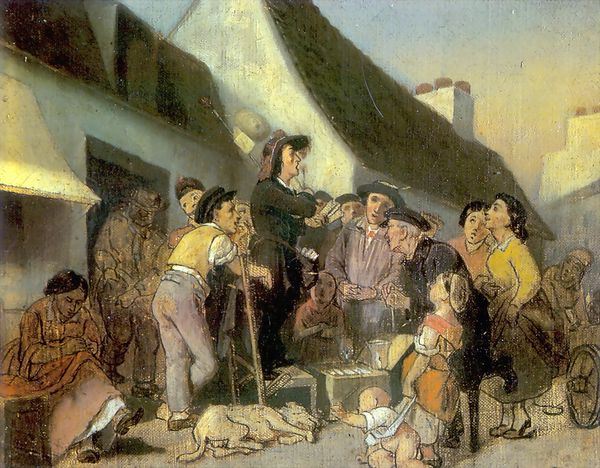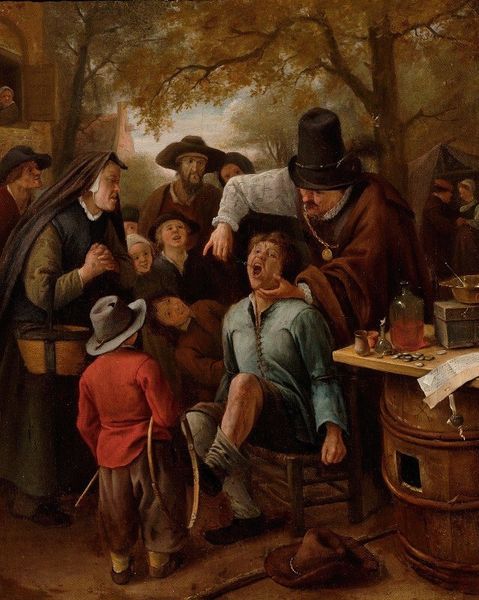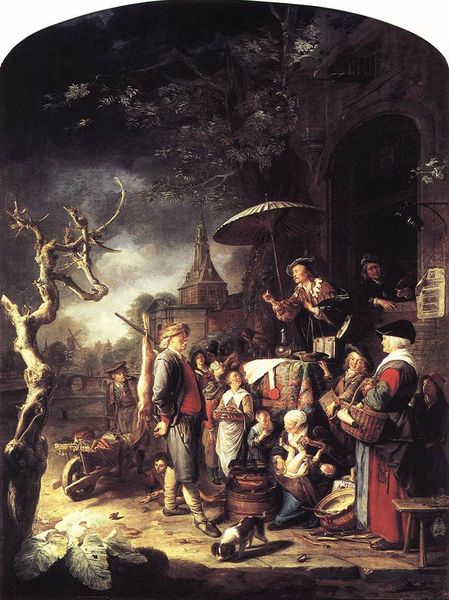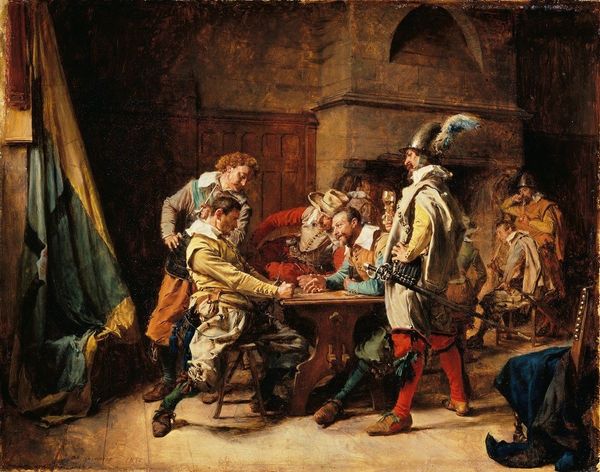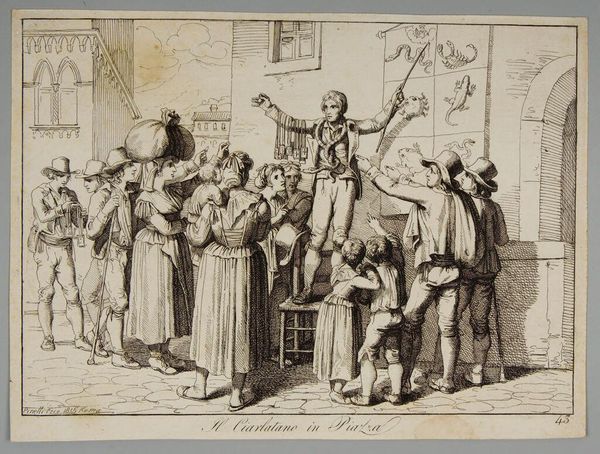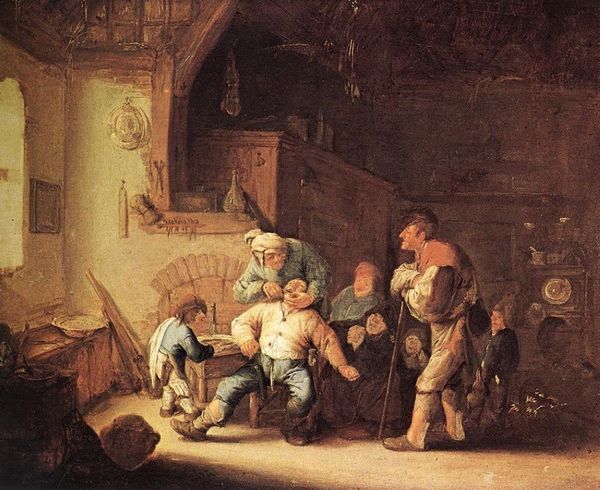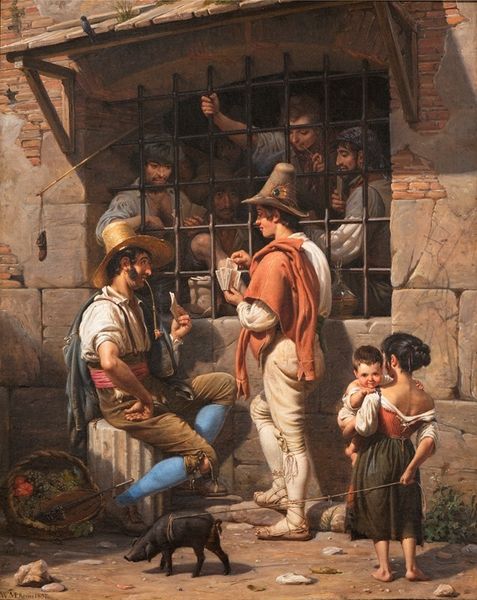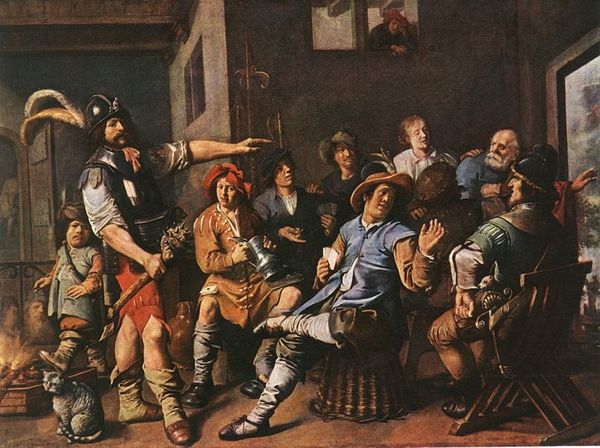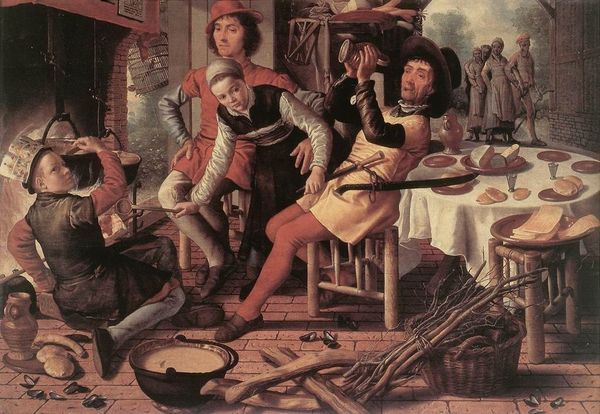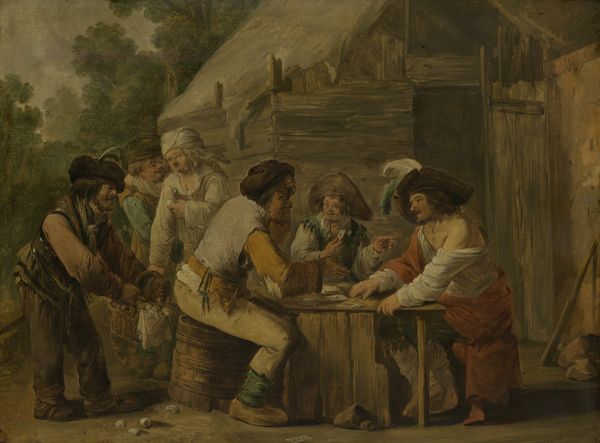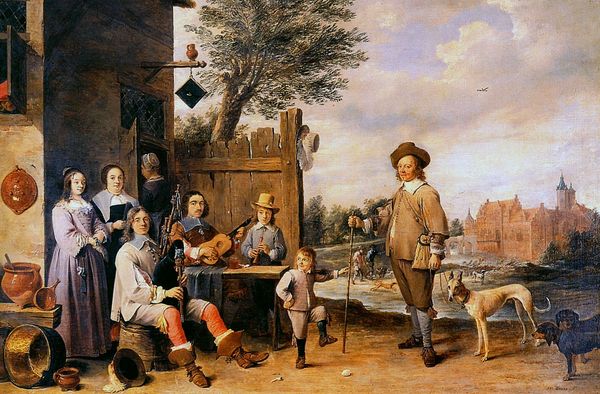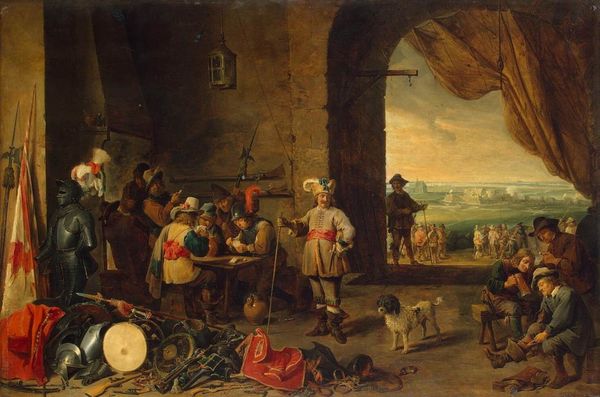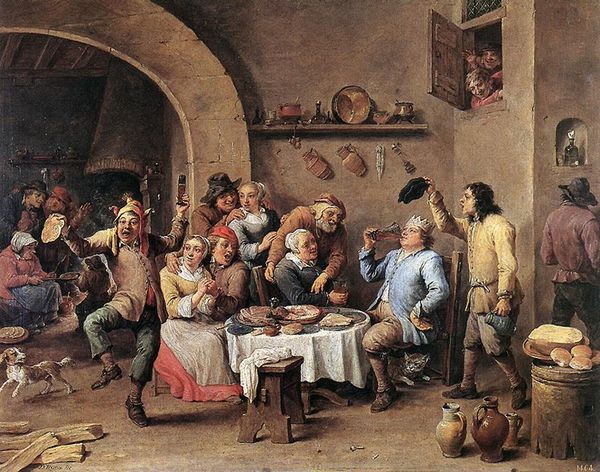
oil-paint
#
narrative-art
#
baroque
#
dutch-golden-age
#
oil-paint
#
figuration
#
oil painting
#
genre-painting
Copyright: Public domain
Curator: Ah, this is Jan Miense Molenaer’s "Quack and His Assistant," painted around 1630. Quite a lively scene captured in oil, wouldn't you agree? Editor: Lively is one word! Chaotic, even? All those faces, packed together, grinning or squinting…it's like a street market after a bit too much ale. Curator: Well, such gatherings were a common subject in Dutch Golden Age painting. These “quacks” or charlatans, were a part of everyday life. Molenaer depicts this in such compelling detail, showing us how medical knowledge was disseminated… or exploited, shall we say? Editor: Exploit! Exactly. The quack, doling out his miracle cure...with music and theatrics. He’s practically selling snake oil, and the crowd are buying into it. The detail of that poor monkey too—makes you wonder what role animals played. What is he really selling? Curator: The composition cleverly places the charlatan and his assistant atop a makeshift stage. The raised platform isn’t only functional, creating a visual distinction that gives them a special prominence, but it also gives us an interesting perspective of that building behind them. This stage becomes both real and metaphorical, highlighting how authority manifests in social structures. Editor: Oh yes, the platform does elevate the figures of "authority," but I keep going back to the dog pulling at that man’s robe, to me it gives the sense of doubt about the product being offered and bought. So much drama in just one painting. And that light...it’s almost spotlighting the performance. What can this tell us about entertainment back then? Curator: Genre paintings such as these really do unveil daily life, providing invaluable insights into the dynamics of health, trade and of course entertainment. And they reveal the rise of the middle class as consumers of art, no longer dependent on aristocratic patronage for their commissions. Editor: It feels as though Molenaer isn’t trying to celebrate or demonize what is going on; he just paints the story to be a kind of witness of society and its everyday dealings, letting us come to our own judgements on this rather strange medicine show. It does however bring to the surface a common thing through our present. The medicine, music, theatricals! What makes you feel better when unwell? Curator: Precisely. The enduring power of "Quack and His Assistant" lies in its capacity to spark dialogues and historical and social reflection centuries after its creation. A mirror to the ways people sought out solace and cures during tumultuous eras of rapid social transformations, really. Editor: Yeah. It's wild how relevant this still feels today, just in a new coat of paint. Art never really lets go of its stories, does it?
Comments
No comments
Be the first to comment and join the conversation on the ultimate creative platform.
